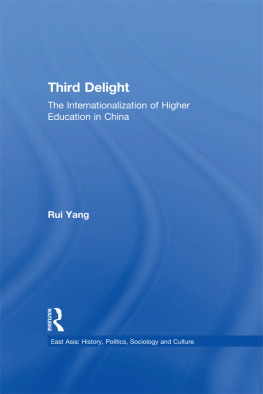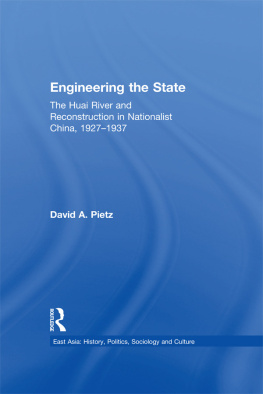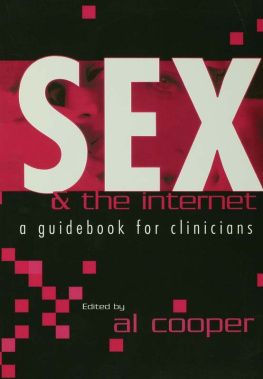E AST A SIA
H ISTORY , P OLITICS , S OCIOLOGY , C ULTURE
E DITED B Y
E DWARD B EAUCHAMP
U NIVERSITY OF H AWAII
A R OUTLEDGE S ERIES
E AST A SIA
H ISTORY , P OLITICS , S OCIOLOGY , C ULTURE
E DWARD B EAUCHAMP , General Editor
M ODERN E DUCATION , T EXTBOOKS , AND THE I MAGE OF THE N ATION
Politics and Modernization andNationalism in Korean Education: 18801910
Yoonmi Lee
P ROBLEMS OF D EMOCRATIZATION IN C HINA
Thomas G. Lum
T HE U NKNOWN C ULTURAL R EVOLUTION
Educational Reforms and Their Impact on Chinas Rural Development, 19661976
Dongping Han
M AO S P REY
The History of Chen Renbing, Liberal Intellectual
Jeanette Ford Fernandez
T HE R OOTS OF J APAN S E NVIRONMENTAL P OLICIES
Amy Wong
T HE O RIGINS OF THE B ILATERAL O KINAWA P ROBLEM
Okinawa in Postwar US-Japan Relations, 19451952
Robert D. Eldridge
South-South Transfer
A Study of Sino-African Exchanges
Sandra Gillespie
S TUDYING THE E NEMY
Japan Hands in Republican China and Their Quest for National Identity
Christiane I. Reinhold
S ELF -R ELIANCE OR S ELF -D ESTRUCTION ?
Success and Failure of the Democratic Peoples Republic of Koreas Development Strategy of Self-Reliance Juche
Phillip H. Park
Published in 2002 by
Routledge
29 West 35th Street
New York, NY 10001
Published in Great Britain by
Routledge
11 New Fetter Lane
London EC4P 4EE
Copyright 2002 by Rui Yang
All rights reserved. No part of this book may be reprinted or reproduced or utilized in any form or by any electronic, mechanical, or other means, now known or hereafter invented, including photocopying and recording, or in any information storage or retrieval system, without permission in writing from the publisher.
Library of Congress Cataloging-in-Publication Data
Cataloging-in-publication data for this book is available from the Library of Congress
ISBN 0-415-93372-2
C ONTENTS
by Anthony R. Welch
C HAPTER O NE
I NTRODUCTION
C HAPTER T WO
N ATIONALISM AND THE O PEN D OOR P OLICY : C HINESE H IGHER E DUCATION 1840s1990s
C HAPTER T HREE
T ENSIONS BETWEEN THE G LOBAL AND THE L OCAL : A C OMPARATIVE I LLUSTRATION OF THE T WO R EORGANIZATIONS OF C HINA S H IGHER E DUCATION IN THE 1950s AND 1990s
C HAPTER F OUR
G LOBALIZATION : A C ONTEXT OF I NEQUALITY AND S CARCITY
C HAPTER F IVE
I NTERNATIONALIZATION : I TS M EANINGS , R ATIONALES AND I MPLICATIONS
C HAPTER S IX
I MPLEMENTING I NTERNATIONALIZATION : A N O VERALL P ICTURE OF G UANGZHOU U NIVERSITIES
C HAPTER S EVEN
I NTERNATIONALIZED W HILE P ROVINCIALIZED ? A C ASE S TUDY OF S OUTH C HINA N ORMAL U NIVERSITY
C HAPTER E IGHT
O PENNESS AND R EFORM AS D YNAMICS FOR D EVELOPMENT : T HE C ASE OF S OUTH C HINA U NIVERSITY OF T ECHNOLOGY
C HAPTER N INE
Z HONGSHAN U NIVERSITY C ASE S TUDY : S OME A NALYSES OF A C OMPREHENSIVE U NIVERSITY
C HAPTER T EN
A DVANTAGES OR D ISADVANTAGES : I MPORTANT I SSUES FOR I NTERNATIONALIZATION OF C HINA S H IGHER E DUCATION
C HAPTER E LEVEN
C ONCLUSIONS AND F UTURE D IRECTIONS
Appendix One
Teachers/Researchers Questionnaire Form
English- and Chinese-Language Versions
Appendix Two
Institutional Administrators Questionnaire Form
English- and Chinese-Language Versions
Appendix Three
Interviews Conducted in Guangzhou and Hong Kong
Appendix Four
Interview Schedule
English- and Chinese-Language Versions
T HE INTERNATIONALIZATION OF HIGHER EDUCATION IS ALREADY A MAJOR THEME WITH -in educational research, to which this study is an exceptional contribution. Longstanding and substantial studies of international student flows (usually from South to North), are now being complemented by research on the movement of academic staff (nearly always in much the same direction), and ways in which programs and even university administrations are being internationalized.
This is as it should be. There are good reasons for this heightened interest in the phenomenon of internationalization, especially for those interested in more trans-national and comparative approaches to understanding educational phenomena. For internationalization immediately raises the question of culture, and cultural interaction, in relation to knowledge. What induces students from one culture to leave home and family, and travel to an often distant, and usually unfamiliar setting, in order to further their education? Is it, as was historically often the case, the lure of an excellent teacher, or an illustrious institution? The prospects of securing better living conditions in a more prosperous part of the world, a chance of a better life? Or the means to secure a better job, upon return home? Perhaps all three may be involved, but there is little doubt that the sacrifices, personal as much as financial, made by such individuals are often immense.
These international flows are not merely of individuals, of course, but form knowledge tributaries at the same time. On occasion, this has been of enormous significance, as with the re-incorporation of elements of the classical Greek canon by Spanish scholars in the mediaeval era, and, in the past century, the watering of foreign fields by German and other philosophers, scientists and others fleeing Nazi Germany, or Austria. Flows of knowledge from China to the West have also been important, at certain points.
Philosophers have for millenia been phrasing the question of knowledge in terms of what knowledge is of most worth? More recently, sociologists have rephrased the question in an arguably more complex way - in terms of what and whose knowledge is being taught, and how this question relates to power structures within the wider society. How much more complex do such questions become when cross-national transfers of knowledge become the focus of attention? For example, how far can we be sure that the knowledge that is acquired by students in the North is applicable to contexts to which they may return, in the South? How far do university faculties in the US, Germany, the UK or Australia, strive to ensure that their traditional fare is revised to take account of the increasingly diverse range of cultural settings from which their students now originate? What might be the attitude of peers in an academic department to the return of colleagues from overseas with different ways of seeing, a differing knowledge corpus, and with fresh, and often challenging approaches to curriculum, teaching and learning? Might this be seen as a threat to longstanding and conventional ways of doing things, especially in universities sited in East Asian countries such as Korea and China, with ancient and powerful intellectual and social traditions?
Also of considerable importance, although less often studied, are the financial and political effects. In the context of a growing international fiscal crisis in higher education towards the end of the last century, which affected many systems to differing degrees, the flow of international students has also become a multi-billion dollar industry, with intense competition between institutions and nations for market share. Does this distort the process of education, and cultural interaction between teacher and student? Is there a risk that financial imperatives at national or institutional levels may, at times, overwhelm educational qualities? Is there a risk that the increasing trend towards high fees for international students may exacerbate the trend towards reducing the options for international higher education for women, rural students, and the poor?





